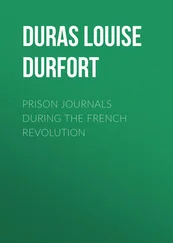Томас Карлейль - The French Revolution - A History
Здесь есть возможность читать онлайн «Томас Карлейль - The French Revolution - A History» — ознакомительный отрывок электронной книги совершенно бесплатно, а после прочтения отрывка купить полную версию. В некоторых случаях можно слушать аудио, скачать через торрент в формате fb2 и присутствует краткое содержание. Жанр: foreign_prose, История, foreign_edu, foreign_antique, на английском языке. Описание произведения, (предисловие) а так же отзывы посетителей доступны на портале библиотеки ЛибКат.
- Название:The French Revolution: A History
- Автор:
- Жанр:
- Год:неизвестен
- ISBN:нет данных
- Рейтинг книги:4 / 5. Голосов: 1
-
Избранное:Добавить в избранное
- Отзывы:
-
Ваша оценка:
- 80
- 1
- 2
- 3
- 4
- 5
The French Revolution: A History: краткое содержание, описание и аннотация
Предлагаем к чтению аннотацию, описание, краткое содержание или предисловие (зависит от того, что написал сам автор книги «The French Revolution: A History»). Если вы не нашли необходимую информацию о книге — напишите в комментариях, мы постараемся отыскать её.
The French Revolution: A History — читать онлайн ознакомительный отрывок
Ниже представлен текст книги, разбитый по страницам. Система сохранения места последней прочитанной страницы, позволяет с удобством читать онлайн бесплатно книгу «The French Revolution: A History», без необходимости каждый раз заново искать на чём Вы остановились. Поставьте закладку, и сможете в любой момент перейти на страницу, на которой закончили чтение.
Интервал:
Закладка:
Meanwhile, with fit ceremonial words, the purpose of the royal breast is signified:—Two Edicts, for Protestant Emancipation, for Successive Loan: of both which Edicts our trusty Garde-des-Sceaux Lamoignon will explain the purport; on both which a trusty Parlement is requested to deliver its opinion, each member having free privilege of speech. And so, Lamoignon too having perorated not amiss, and wound up with that Promise of States-General,—the Sphere-music of Parlementary eloquence begins. Explosive, responsive, sphere answering sphere, it waxes louder and louder. The Peers sit attentive; of diverse sentiment: unfriendly to States-General; unfriendly to Despotism, which cannot reward merit, and is suppressing places. But what agitates his Highness d'Orleans? The rubicund moon-head goes wagging; darker beams the copper visage, like unscoured copper; in the glazed eye is disquietude; he rolls uneasy in his seat, as if he meant something. Amid unutterable satiety, has sudden new appetite, for new forbidden fruit, been vouchsafed him? Disgust and edacity; laziness that cannot rest; futile ambition, revenge, non-admiralship:—O, within that carbuncled skin what a confusion of confusions sits bottled!
'Eight Couriers,' in course of the day, gallop from Versailles, where Lomenie waits palpitating; and gallop back again, not with the best news. In the outer Courts of the Palais, huge buzz of expectation reigns; it is whispered the Chief Minister has lost six votes overnight. And from within, resounds nothing but forensic eloquence, pathetic and even indignant; heartrending appeals to the royal clemency, that his Majesty would please to summon States-General forthwith, and be the Saviour of France:—wherein dusky-glowing D'Espremenil, but still more Sabatier de Cabre, and Freteau, since named Commere Freteau ( Goody Freteau ), are among the loudest. For six mortal hours it lasts, in this manner; the infinite hubbub unslackened.
And so now, when brown dusk is falling through the windows, and no end visible, his Majesty, on hint of Garde-des-Sceaux, Lamoignon, opens his royal lips once more to say, in brief That he must have his Loan-Edict registered.—Momentary deep pause!—See! Monseigneur d'Orleans rises; with moon-visage turned towards the royal platform, he asks, with a delicate graciosity of manner covering unutterable things: "Whether it is a Bed of Justice, then; or a Royal Session?" Fire flashes on him from the throne and neighbourhood: surly answer that "it is a Session." In that case, Monseigneur will crave leave to remark that Edicts cannot be registered by order in a Session; and indeed to enter, against such registry, his individual humble Protest. "Vous etes bien le maitre ( You will do your pleasure )", answers the King; and thereupon, in high state, marches out, escorted by his Court-retinue; D'Orleans himself, as in duty bound, escorting him, but only to the gate. Which duty done, D'Orleans returns in from the gate; redacts his Protest, in the face of an applauding Parlement, an applauding France; and so—has cut his Court-moorings, shall we say? And will now sail and drift, fast enough, towards Chaos?
Thou foolish D'Orleans; Equality that art to be! Is Royalty grown a mere wooden Scarecrow; whereon thou, pert scald-headed crow, mayest alight at pleasure, and peck? Not yet wholly.
Next day, a Lettre-de-Cachet sends D'Orleans to bethink himself in his Chateau of Villers-Cotterets, where, alas, is no Paris with its joyous necessaries of life; no fascinating indispensable Madame de Buffon,—light wife of a great Naturalist much too old for her. Monseigneur, it is said, does nothing but walk distractedly, at Villers-Cotterets; cursing his stars. Versailles itself shall hear penitent wail from him, so hard is his doom. By a second, simultaneous Lettre-de-Cachet, Goody Freteau is hurled into the Stronghold of Ham, amid the Norman marshes; by a third, Sabatier de Cabre into Mont St. Michel, amid the Norman quicksands. As for the Parlement, it must, on summons, travel out to Versailles, with its Register-Book under its arm, to have the Protest biffe ( expunged ); not without admonition, and even rebuke. A stroke of authority which, one might have hoped, would quiet matters.
Unhappily, no; it is a mere taste of the whip to rearing coursers, which makes them rear worse! When a team of Twenty-five Millions begins rearing, what is Lomenie's whip? The Parlement will nowise acquiesce meekly; and set to register the Protestant Edict, and do its other work, in salutary fear of these three Lettres-de-Cachet. Far from that, it begins questioning Lettres-de-Cachet generally, their legality, endurability; emits dolorous objurgation, petition on petition to have its three Martyrs delivered; cannot, till that be complied with, so much as think of examining the Protestant Edict, but puts it off always 'till this day week.' ( Besenval, iii. 309. )
In which objurgatory strain Paris and France joins it, or rather has preceded it; making fearful chorus. And now also the other Parlements, at length opening their mouths, begin to join; some of them, as at Grenoble and at Rennes, with portentous emphasis,—threatening, by way of reprisal, to interdict the very Tax-gatherer. ( Weber, i. 266. ) "In all former contests," as Malesherbes remarks, "it was the Parlement that excited the Public; but here it is the Public that excites the Parlement."
Chapter 1.3.VII
Internecine
What a France, through these winter months of the year 1787! The very Oeil-de-Boeuf is doleful, uncertain; with a general feeling among the Suppressed, that it were better to be in Turkey. The Wolf-hounds are suppressed, the Bear-hounds, Duke de Coigny, Duke de Polignac: in the Trianon little-heaven, her Majesty, one evening, takes Besenval's arm; asks his candid opinion. The intrepid Besenval,—having, as he hopes, nothing of the sycophant in him,—plainly signifies that, with a Parlement in rebellion, and an Oeil-de-Boeuf in suppression, the King's Crown is in danger;—whereupon, singular to say, her Majesty, as if hurt, changed the subject, et ne me parla plus de rien! ( Besenval, iii. 264. )
To whom, indeed, can this poor Queen speak? In need of wise counsel, if ever mortal was; yet beset here only by the hubbub of chaos! Her dwelling-place is so bright to the eye, and confusion and black care darkens it all. Sorrows of the Sovereign, sorrows of the woman, think-coming sorrows environ her more and more. Lamotte, the Necklace-Countess, has in these late months escaped, perhaps been suffered to escape, from the Salpetriere. Vain was the hope that Paris might thereby forget her; and this ever-widening-lie, and heap of lies, subside. The Lamotte, with a V ( for Voleuse, Thief ) branded on both shoulders, has got to England; and will therefrom emit lie on lie; defiling the highest queenly name: mere distracted lies; ( Memoires justificatifs de la Comtesse de Lamotte ( London, 1788 ). Vie de Jeanne de St. Remi, Comtesse de Lamotte, &c. &c. See Diamond Necklace ( ut supra ). ) which, in its present humour, France will greedily believe.
For the rest, it is too clear our Successive Loan is not filling. As indeed, in such circumstances, a Loan registered by expunging of Protests was not the likeliest to fill. Denunciation of Lettres-de-Cachet, of Despotism generally, abates not: the Twelve Parlements are busy; the Twelve hundred Placarders, Balladsingers, Pamphleteers. Paris is what, in figurative speech, they call 'flooded with pamphlets ( regorge de brochures );' flooded and eddying again. Hot deluge,—from so many Patriot ready-writers, all at the fervid or boiling point; each ready-writer, now in the hour of eruption, going like an Iceland Geyser! Against which what can a judicious friend Morellet do; a Rivarol, an unruly Linguet ( well paid for it ),—spouting cold!
Читать дальшеИнтервал:
Закладка:
Похожие книги на «The French Revolution: A History»
Представляем Вашему вниманию похожие книги на «The French Revolution: A History» списком для выбора. Мы отобрали схожую по названию и смыслу литературу в надежде предоставить читателям больше вариантов отыскать новые, интересные, ещё непрочитанные произведения.
Обсуждение, отзывы о книге «The French Revolution: A History» и просто собственные мнения читателей. Оставьте ваши комментарии, напишите, что Вы думаете о произведении, его смысле или главных героях. Укажите что конкретно понравилось, а что нет, и почему Вы так считаете.












